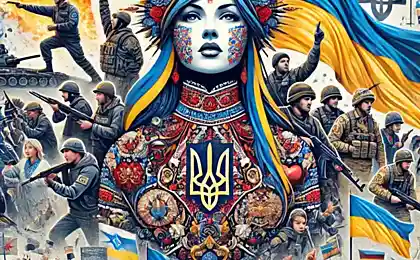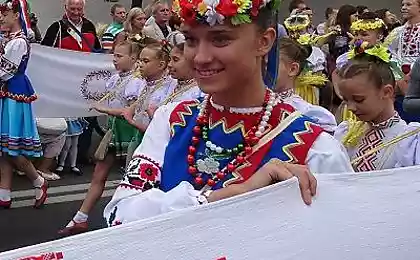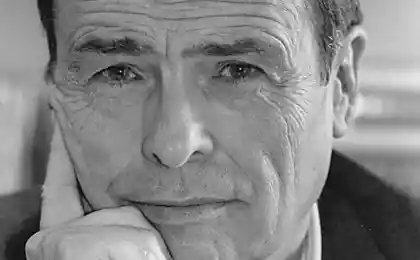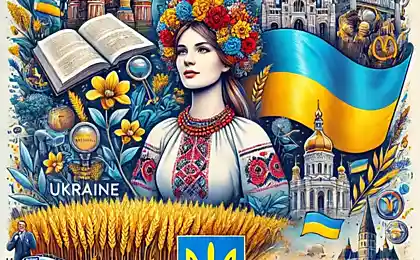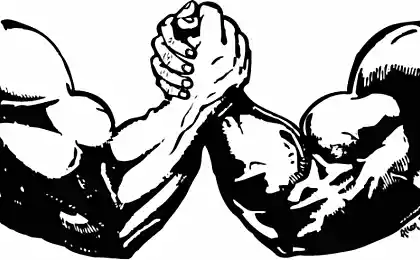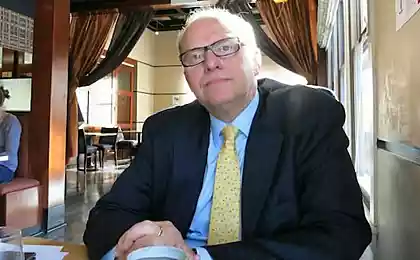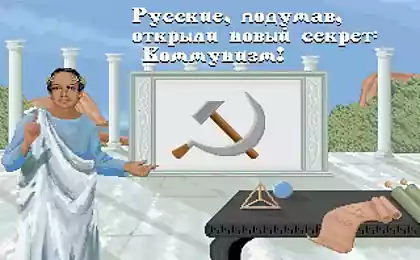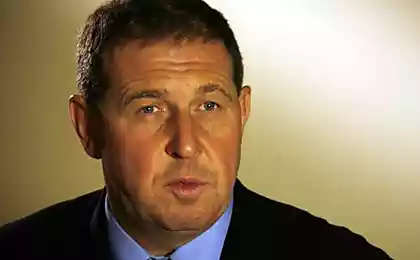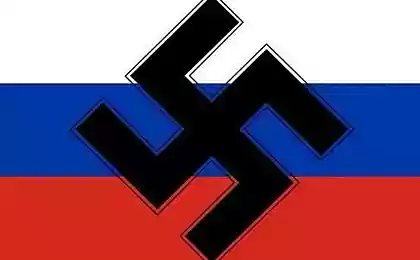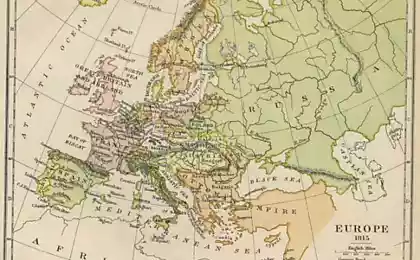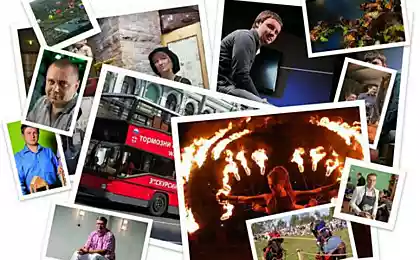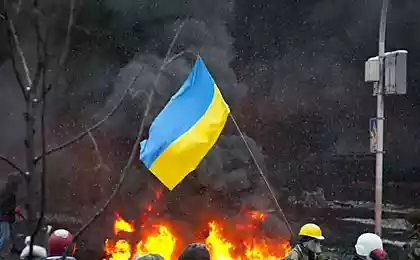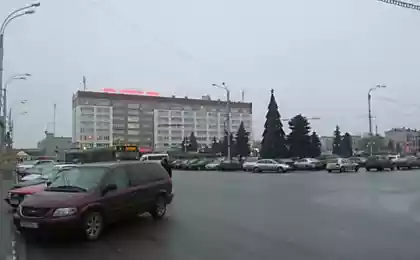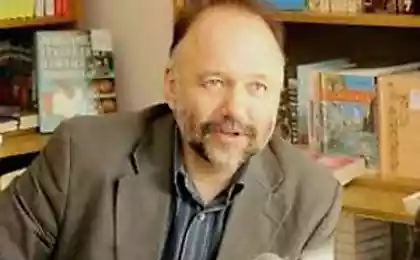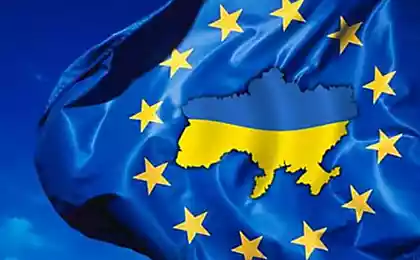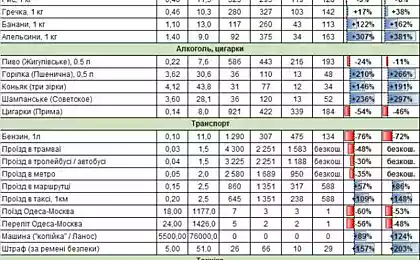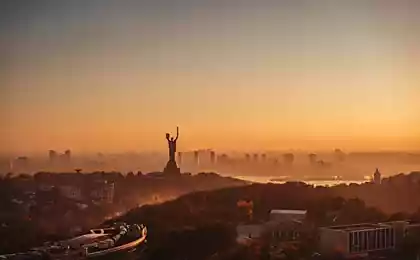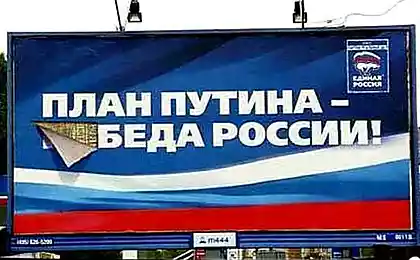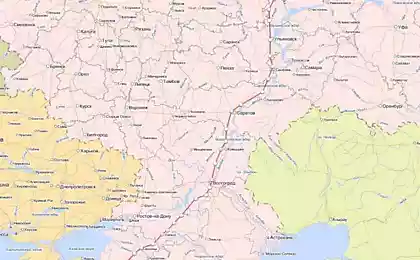3617
7 myths about Ukraine
In the midst of an information war is sometimes difficult to distinguish the real news from propaganda horror stories. Many myths about Ukraine, firmly entrenched in the minds of Russians today are the basis for the military invasion of the Crimea. Stay 7 of the brightest of them.
Myth 1. In Ukraine, do not like Russian and banned the Russian language.
Despite all the tension between the two countries, while there are no examples of attacks on Russian soil on the national hatred. Moreover, on the Maidan during the revolution there were many Russian, including Russian with Russian flags, expressing support for the struggle for democratic change. Some Russians spoke from the rostrum of the Maidan.
As for the language in Ukraine and still acts adopted in 2012 a law on the Principles of State Language Policy under which Russian language has the status of a regional in areas where he was considered a family of at least 10% of the population, namely in 13 of 27 areas. At the same time, we note, in Russia today there is no such law.
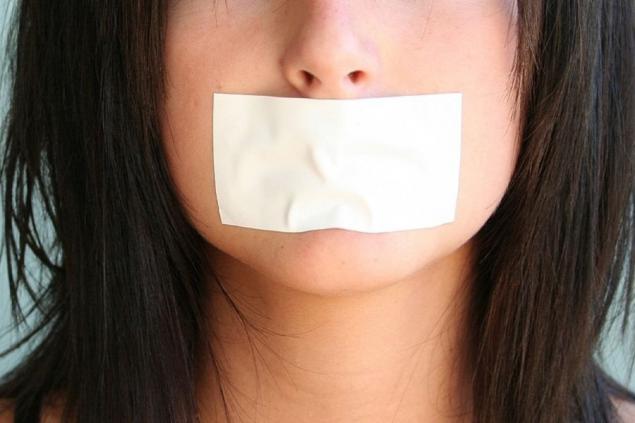
Myth 2: Revolution in Ukraine is charged right-wing radicals
Of the political leaders who came to power after the revolution (Klitschko, Tymoshenko, Yatsenyuk Turchynov, Tyagnibok, Poroshenko) Tyagnibok only refers to more or less radical nationalists. Electoral rating from Tyagniboka while lower than that of the other leaders. Apparently, the main contenders for the presidency will be Vitali Klitschko (who even spoke at rallies in Russian, not Ukrainian), Yulia Tymoshenko (which probably can be attributed to the left than to the right) and Peter Poroshenko (who served as Minister Yanukovych government in the economy and in the right-wing radicalism is also not seen).
Among the "armed wing" of the revolutionaries, indeed there were many nationalists - which include, for example, and the leader of the "right sector" Dmitry Yarosh. But, first, Yarosh not so radical in his views, he is credited as (say, "appeal to Doku Umarov" from his face was a fake), and secondly, to any leadership positions today he does not have to qualify. Of the truly radical nationalists can remember except Alexander Muzychko, but that has formed in the image of Ukraine crazy city and appease his demand even the Verkhovna Rada (probably soon it will happen).
Russian media also actively used some photos that thugs with guns attacked by masked police officers. Reported that they arrived by bus from the city (and indeed, on one of the buses on the photo reads "Lions"). True, the numbers he had somehow Crimean. Then the same bus journalist Forbes found in the Crimea - it transported local "volunteers».
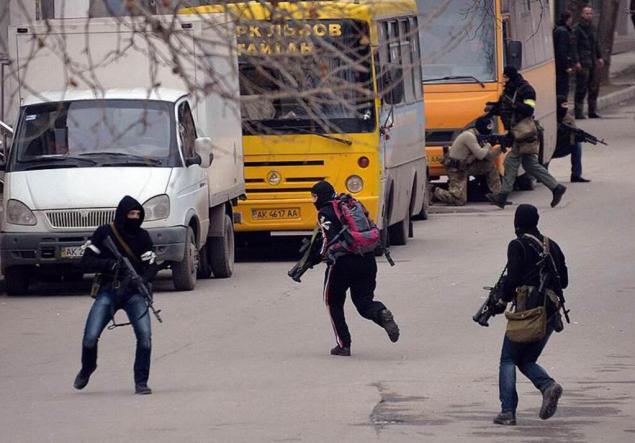
It should be noted that the Russian nationalists in power presents a much more significant. Say nationalist Dmitry Rogozin was promoted to the position of deputy prime minister. His former colleague in the nationalist party "Rodina" Sergei Glazyev became an adviser to Putin, and was reportedly one of the most active supporters of the invasion of Ukraine. And eyes, and Rogozin remembered for campaign commercials in which visitors compared to the "mud", from which it is necessary "to clean" Moscow.
Myth 3: The Revolution in Ukraine led to the crisis and ruin
Propaganda can deceive ordinary people, but not investors. Investors cynical and pragmatic people, they go from where things are bad, and buy where expected growth.
February 24, when the change of power in Ukraine, the Ukrainian Exchange was forced to suspend trading on a sharp rise in the index (more than 15% per day). It seems that the business does not see the disaster in the revolution. Things got worse in Ukraine, when Russia announced its desire to invade the Crimea. It is Russia, which accounts for one third of turnover in Ukraine, and not a change of government - the cause of the current economic problems Square. However, the aggressive policy of the Kremlin is even more expensive Russia itself. On Monday on news of the invasion of the Crimea on the Moscow Stock Exchange RTS index fell to a minimum in September 2009. Total losses of capitalization of Russian companies in one day amounted to more than 62 billion. Dollars. That's more than the entire capital outflows over the past year. The same day, the Central Bank has spent $ 10 billion. To support the ruble. And if the stock market may still occur slight rebound, then 10 billion. Dollars spent by the Central Bank, no one will return. And considering imposing sanctions by the United States, it seems that the economic crisis in Russia has just begun.
Turned out to be lies and all posts on the flow of refugees from Ukraine. Russian media claimed hundreds of thousands (!) Of crazed with fear Ukrainians jerked protection in Russia. In fact, on the border there is not that big, there is generally no queues. So far we only know that the refuge in Russia were fighters "Berkut" fear of criminal offense, for the violence against protesters on Independence.
Myth 4: "Stepan Bandera fought under Nazi banners against Russia».
These words do not belong to anybody, and Russia's representative to the UN, Vitaly Churkin, and he said they were not anywhere, and at a meeting of the UN Security Council. In fact, Bandera (with all its many shortcomings) not only fought under the Nazi flag, but he was sent to Sachsenhausen concentration camp by the Nazis.
It remains only to recall that the Soviet Union, which fought against Bandera, just two years before his arrest by the Nazis carried out with a joint parade in Brest. The city of Lvov - the hometown of Bandera - belonged to Poland, which the Soviet Union and Nazi Germany seized together, according to the plan the Molotov-Ribbentrop on the division of Europe. In 1939, Lvov had DEFENSE first the Nazis and then by the Bolsheviks.
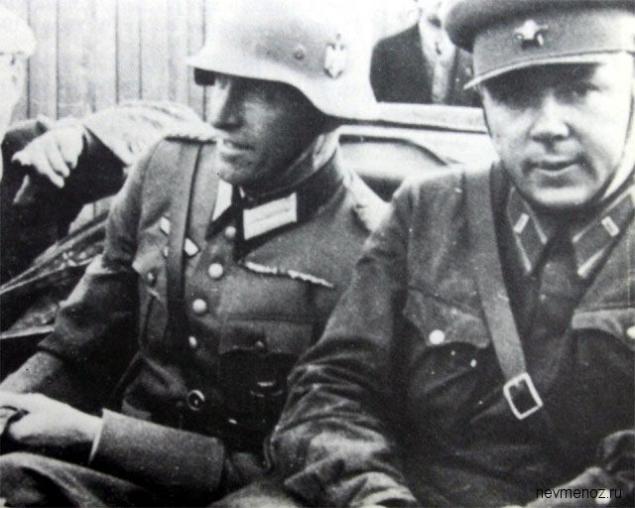
Myth 5: The revolution threatens Russian interests.
The revolutionary events in Ukraine, as we know, began with the failure of Yanukovych to sign an association agreement with the EU. According to popular belief, Putin pressed while Yanukovych because this agreement would prevent Ukraine to join the Customs Union. In fact, there is no contradiction here. Israel say that since the year 2000 has an association agreement with the EU, was recently asked in the Customs Union.
Nor was there any threat to the Russian military bases in the Crimea. New Ukrainian authorities pledged to fulfill all existing international agreements (including on Russian bases).
Thus, if the Ukrainian revolution and threatens something interests of Russian power, no more than any other good example of how a society can take power into their own hands.
Myth 6. The Ukrainian opposition has violated an agreement with Yanukovych February 21.
When Yanukovych realized that resist Maidan he can not, he signed with the opposition agreement, which provided for early elections and a return to the constitution. Russia was also invited to sign the treaty, but the Kremlin refused. But now loudly declares its violation. But was it broken?
After the Parliament adopted a law on the return of Ukraine's 2004 Constitution, Yanukovych, in accordance with the terms of the agreement, had 24 hours to sign the law, after which the protesters should have been released a number of government buildings and take other steps to reduce tensions. However, instead of signing Yanukovych left Kiev and disappeared. After that, even Yanukovych's party, voted for the law on the elimination of his position and adopted a new government. It should be recalled that it is the Party of Regions, and not revolutionaries are today a majority in the parliament. And this glad chosen long before the revolution, formed the current Ukrainian government.
Myth 7. Russia in the Crimea act in accordance with international treaties.
The agreement on "Friendship" in 1997 requires Russia to respect the territorial integrity of Ukraine. Now this agreement is violated by the fact of how the introduction of troops in the Crimea, and the intention to join the Crimea to Russia. The Kremlin is trying to give legitimacy to the annexation of the peninsula, putting in his head of the puppet government and organized a "referendum". Nothing new in this technology is not, at about the Soviet Union joined in time to yourself and the Baltic states. Yet according to the Ukrainian constitution, a referendum on secession can not be carried out. It is noteworthy that although Russia, unlike Ukraine is a federation, the Russian constitution also prohibits submitted to a referendum question on secession. Moreover, according to the recently passed by the Duma to the law, the very discussion of the possibility of such a referendum can be likened to "extremism».
The Kremlin is also often appeals to the fact that the agreement of 97-year Russia has the right to keep troops in the Crimea. In fact, a number of weapons (including helicopter gunships and armored cars "Tiger"), this agreement does not provide, however, they were introduced in Crimea. And of course, no agreements do not provide for the possibility of blocking Ukrainian military bases.
echo.msk.ru/blog/dobrokhotov/1274166-echo/
Myth 1. In Ukraine, do not like Russian and banned the Russian language.
Despite all the tension between the two countries, while there are no examples of attacks on Russian soil on the national hatred. Moreover, on the Maidan during the revolution there were many Russian, including Russian with Russian flags, expressing support for the struggle for democratic change. Some Russians spoke from the rostrum of the Maidan.
As for the language in Ukraine and still acts adopted in 2012 a law on the Principles of State Language Policy under which Russian language has the status of a regional in areas where he was considered a family of at least 10% of the population, namely in 13 of 27 areas. At the same time, we note, in Russia today there is no such law.

Myth 2: Revolution in Ukraine is charged right-wing radicals
Of the political leaders who came to power after the revolution (Klitschko, Tymoshenko, Yatsenyuk Turchynov, Tyagnibok, Poroshenko) Tyagnibok only refers to more or less radical nationalists. Electoral rating from Tyagniboka while lower than that of the other leaders. Apparently, the main contenders for the presidency will be Vitali Klitschko (who even spoke at rallies in Russian, not Ukrainian), Yulia Tymoshenko (which probably can be attributed to the left than to the right) and Peter Poroshenko (who served as Minister Yanukovych government in the economy and in the right-wing radicalism is also not seen).
Among the "armed wing" of the revolutionaries, indeed there were many nationalists - which include, for example, and the leader of the "right sector" Dmitry Yarosh. But, first, Yarosh not so radical in his views, he is credited as (say, "appeal to Doku Umarov" from his face was a fake), and secondly, to any leadership positions today he does not have to qualify. Of the truly radical nationalists can remember except Alexander Muzychko, but that has formed in the image of Ukraine crazy city and appease his demand even the Verkhovna Rada (probably soon it will happen).
Russian media also actively used some photos that thugs with guns attacked by masked police officers. Reported that they arrived by bus from the city (and indeed, on one of the buses on the photo reads "Lions"). True, the numbers he had somehow Crimean. Then the same bus journalist Forbes found in the Crimea - it transported local "volunteers».

It should be noted that the Russian nationalists in power presents a much more significant. Say nationalist Dmitry Rogozin was promoted to the position of deputy prime minister. His former colleague in the nationalist party "Rodina" Sergei Glazyev became an adviser to Putin, and was reportedly one of the most active supporters of the invasion of Ukraine. And eyes, and Rogozin remembered for campaign commercials in which visitors compared to the "mud", from which it is necessary "to clean" Moscow.
Myth 3: The Revolution in Ukraine led to the crisis and ruin
Propaganda can deceive ordinary people, but not investors. Investors cynical and pragmatic people, they go from where things are bad, and buy where expected growth.
February 24, when the change of power in Ukraine, the Ukrainian Exchange was forced to suspend trading on a sharp rise in the index (more than 15% per day). It seems that the business does not see the disaster in the revolution. Things got worse in Ukraine, when Russia announced its desire to invade the Crimea. It is Russia, which accounts for one third of turnover in Ukraine, and not a change of government - the cause of the current economic problems Square. However, the aggressive policy of the Kremlin is even more expensive Russia itself. On Monday on news of the invasion of the Crimea on the Moscow Stock Exchange RTS index fell to a minimum in September 2009. Total losses of capitalization of Russian companies in one day amounted to more than 62 billion. Dollars. That's more than the entire capital outflows over the past year. The same day, the Central Bank has spent $ 10 billion. To support the ruble. And if the stock market may still occur slight rebound, then 10 billion. Dollars spent by the Central Bank, no one will return. And considering imposing sanctions by the United States, it seems that the economic crisis in Russia has just begun.
Turned out to be lies and all posts on the flow of refugees from Ukraine. Russian media claimed hundreds of thousands (!) Of crazed with fear Ukrainians jerked protection in Russia. In fact, on the border there is not that big, there is generally no queues. So far we only know that the refuge in Russia were fighters "Berkut" fear of criminal offense, for the violence against protesters on Independence.
Myth 4: "Stepan Bandera fought under Nazi banners against Russia».
These words do not belong to anybody, and Russia's representative to the UN, Vitaly Churkin, and he said they were not anywhere, and at a meeting of the UN Security Council. In fact, Bandera (with all its many shortcomings) not only fought under the Nazi flag, but he was sent to Sachsenhausen concentration camp by the Nazis.
It remains only to recall that the Soviet Union, which fought against Bandera, just two years before his arrest by the Nazis carried out with a joint parade in Brest. The city of Lvov - the hometown of Bandera - belonged to Poland, which the Soviet Union and Nazi Germany seized together, according to the plan the Molotov-Ribbentrop on the division of Europe. In 1939, Lvov had DEFENSE first the Nazis and then by the Bolsheviks.

Myth 5: The revolution threatens Russian interests.
The revolutionary events in Ukraine, as we know, began with the failure of Yanukovych to sign an association agreement with the EU. According to popular belief, Putin pressed while Yanukovych because this agreement would prevent Ukraine to join the Customs Union. In fact, there is no contradiction here. Israel say that since the year 2000 has an association agreement with the EU, was recently asked in the Customs Union.
Nor was there any threat to the Russian military bases in the Crimea. New Ukrainian authorities pledged to fulfill all existing international agreements (including on Russian bases).
Thus, if the Ukrainian revolution and threatens something interests of Russian power, no more than any other good example of how a society can take power into their own hands.
Myth 6. The Ukrainian opposition has violated an agreement with Yanukovych February 21.
When Yanukovych realized that resist Maidan he can not, he signed with the opposition agreement, which provided for early elections and a return to the constitution. Russia was also invited to sign the treaty, but the Kremlin refused. But now loudly declares its violation. But was it broken?
After the Parliament adopted a law on the return of Ukraine's 2004 Constitution, Yanukovych, in accordance with the terms of the agreement, had 24 hours to sign the law, after which the protesters should have been released a number of government buildings and take other steps to reduce tensions. However, instead of signing Yanukovych left Kiev and disappeared. After that, even Yanukovych's party, voted for the law on the elimination of his position and adopted a new government. It should be recalled that it is the Party of Regions, and not revolutionaries are today a majority in the parliament. And this glad chosen long before the revolution, formed the current Ukrainian government.
Myth 7. Russia in the Crimea act in accordance with international treaties.
The agreement on "Friendship" in 1997 requires Russia to respect the territorial integrity of Ukraine. Now this agreement is violated by the fact of how the introduction of troops in the Crimea, and the intention to join the Crimea to Russia. The Kremlin is trying to give legitimacy to the annexation of the peninsula, putting in his head of the puppet government and organized a "referendum". Nothing new in this technology is not, at about the Soviet Union joined in time to yourself and the Baltic states. Yet according to the Ukrainian constitution, a referendum on secession can not be carried out. It is noteworthy that although Russia, unlike Ukraine is a federation, the Russian constitution also prohibits submitted to a referendum question on secession. Moreover, according to the recently passed by the Duma to the law, the very discussion of the possibility of such a referendum can be likened to "extremism».
The Kremlin is also often appeals to the fact that the agreement of 97-year Russia has the right to keep troops in the Crimea. In fact, a number of weapons (including helicopter gunships and armored cars "Tiger"), this agreement does not provide, however, they were introduced in Crimea. And of course, no agreements do not provide for the possibility of blocking Ukrainian military bases.
echo.msk.ru/blog/dobrokhotov/1274166-echo/

